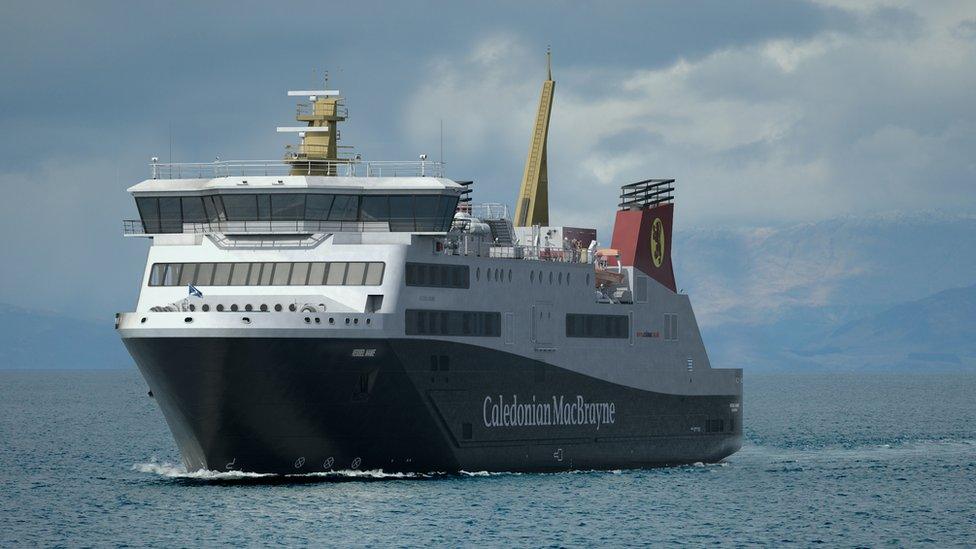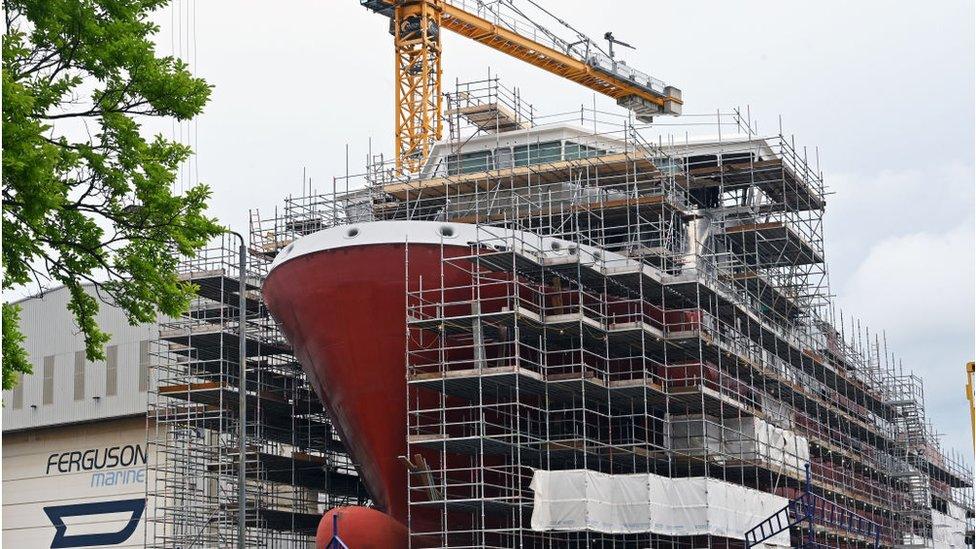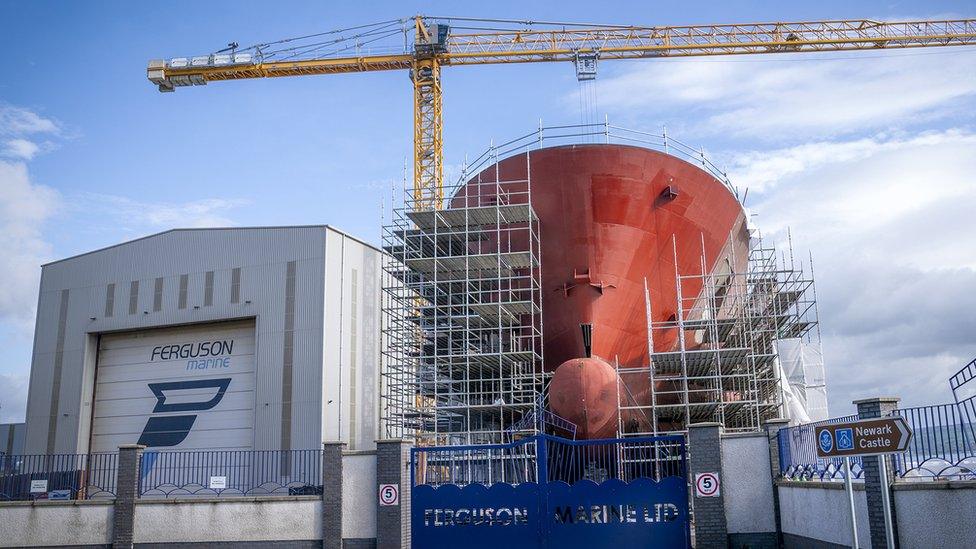Hull 802: Public asked to choose name for delayed ferry
- Published

An artist's impression of how Hull 802 will look when it is finished
The public is being asked to choose the name for the second CalMac ferry being constructed at the Ferguson shipyard.
The ship - so far known only as Hull 802 - is currently due for delivery by the end of next year, six years later than originally agreed.
The online vote, external will be restricted to a shortlist of three names: Glen Cloy, Glen Rosa and Claymore.
Still on the slipway, Hull 802 is due to be launched later this year but will require months of further fitting out.
Construction of the two ships at the Port Glasgow yard has been mired in controversy.
Along with Glen Sannox, the cost to the public purse is now more than £300m, over three times the contract price.
That figure does not include other costs associated with running the yard itself which was nationalised in 2019.
Public naming contests for ships have in the past proved hostage to fortune. In 2016 an online poll found "Boaty McBoatface" was the popular choice for a new polar research ship, garnering nearly 125,000 votes.
In the end the ship was named RRS Sir David Attenborough, and the Boaty McBoatface moniker was reserved for one of the ship's remote submersibles.

Hull 802 is expected to be launched from the Ferguson slipway later this year
The shortlist for Hull 802 is in keeping with the names of other ships in the Calmac fleet, and the expectation that, along with Glen Sannox, it will provide services on the Arran route as well as relief capacity.
Glen Cloy is a small valley on the east coast of Arran while Glen Rosa is a glen near Goat Fell on the island
Claymore is derived from the Gaelic word claidheamh mòr, meaning great sword.
Kevin Hobbs, chief executive of government-owned ferries agency CMAL, said: "The two ferries, Glen Sannox and Hull 802, will be a welcome addition to our Clyde and Hebrides Ferry Services network - however Hull 802 is currently nameless.
"We know there's a lot of interest in the dual fuel ferries, so we hope to see this translate into votes."
The two vessels will be capable of running both on conventional marine gas oil and liquefied natural gas (LNG).
The LNG fuel is cleaner in terms of exhaust emissions, known as NOx and SOx, and potentially reduces CO2 emissions by up to 25% although that figure does not include the carbon cost of transporting the fuel to Scotland.
The current plan is to import the LNG from Qatar and drive it north in tankers from a terminal in Kent.
The poll is open until 23 August. Voters will be entered into a competition to win a free return journey on one of the new ferries for four passengers and a car.
Related topics
- Published16 May 2023
